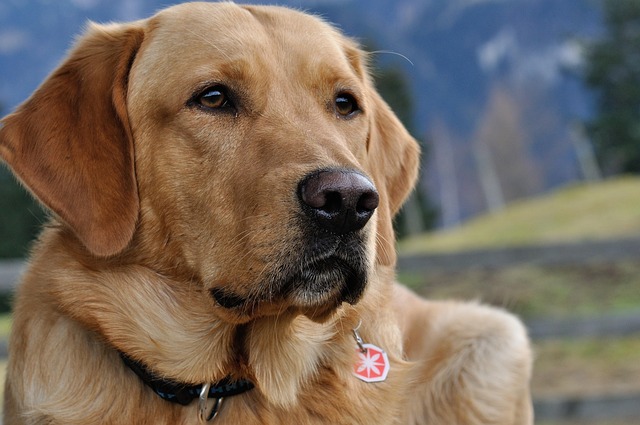
How can I tell if my dog's heatstroke is serious
Let’s be real: It’s a sticky August morning in Los Angeles, and you took your 2-year-old Golden Retriever, Max, for a walk a little later than usual
Finding clumps of your Labrador’s fluffy coat on the couch, carpet, and even your clothes can feel overwhelming—especially when you’ve tried brushing more and switching shampoos with no luck. Severe hair loss in Labs often points to missing nutrients, not just normal shedding. Getting their diet right with targeted supplements can bring back that shiny, thick coat they’re known for.
Omega - 3 and Omega - 6 fatty acids are non - negotiable here. Labs have dense double coats that need these healthy fats to stay strong. Look for supplements with fish oil (from salmon or sardines) or flaxseed oil—avoid cheap brands that might have additives. Many vets recommend aiming for a balance between the two omegas; too much of one can throw things off. Also, check if your chosen supplement has third - party testing—most trusted brands in pet care do this to prove purity.
 High - quality protein is another must. Labs are active dogs, and their hair is mostly made of protein—if they’re not getting enough, their bodies will prioritize muscles over a healthy coat. Add lean options like cooked chicken, turkey, or eggs to their meals, or switch to a kibble with real meat as the first ingredient. Steer clear of low - protein diets with lots of fillers; they’ll only make hair loss worse and might not meet local pet food nutrition standards.
High - quality protein is another must. Labs are active dogs, and their hair is mostly made of protein—if they’re not getting enough, their bodies will prioritize muscles over a healthy coat. Add lean options like cooked chicken, turkey, or eggs to their meals, or switch to a kibble with real meat as the first ingredient. Steer clear of low - protein diets with lots of fillers; they’ll only make hair loss worse and might not meet local pet food nutrition standards.
Vitamin B complex plays a quiet but key role. B vitamins (like biotin and B12) help your Lab’s body absorb nutrients and keep their skin healthy—unhealthy skin leads to weak hair that falls out easily. You can find B vitamins in plain yogurt (make sure it’s xylitol - free, since xylitol is toxic to dogs) or vet - recommended supplements. Never give them human B vitamin pills, though—dosages for dogs are different, and some ingredients can harm them.
Zinc is often overlooked but critical. A zinc deficiency can cause patchy hair loss and dry, flaky skin in Labs. Good food sources include pumpkin seeds (crushed small so they can digest them) and lean beef, but supplements might be needed for severe cases. Always talk to your vet before starting zinc supplements—too much zinc can lead to other health issues, and they’ll help you pick a safe dose.
Patience is just as important as the right nutrients. It can take 4 - 6 weeks to see new growth in your Lab’s coat, so don’t get discouraged if you don’t notice a change right away. If hair loss gets worse or comes with other symptoms (like itching or weight loss), schedule a vet visit—there might be an underlying issue beyond nutrition. Before long, you’ll be seeing less fur on your floors and more of that happy, fluffy Lab you love.

Let’s be real: It’s a sticky August morning in Los Angeles, and you took your 2-year-old Golden Retriever, Max, for a walk a little later than usual

You're enjoying a summer afternoon at the park when you notice your dog has stopped panting and appears disoriented - their gums are bright red

Let’s paint the picture: You’re in your Denver apartment, watching your 4-year-old Boston Terrier, Ruby, plop down mid-play session with her favorite toy

Many dog owners notice their pets nails seem shorter after regular walks,but how much does this daily activity actually help?The answer depends on where you walk—concrete sidewalks or asphalt streets gently file nails as a dog's paws hit the ground

Most dog owners notice their pup scooting across the carpet at some point, but few connect it to impacted anal glands. These small sacs near a dog’s rectum secrete a scent for marking territory

Most vets agree that regular dog teeth cleaning is key to avoiding painful dental issues later. For healthy adult dogs, a professional cleaning at the vet’s office every 12 to 18 months usually works well.